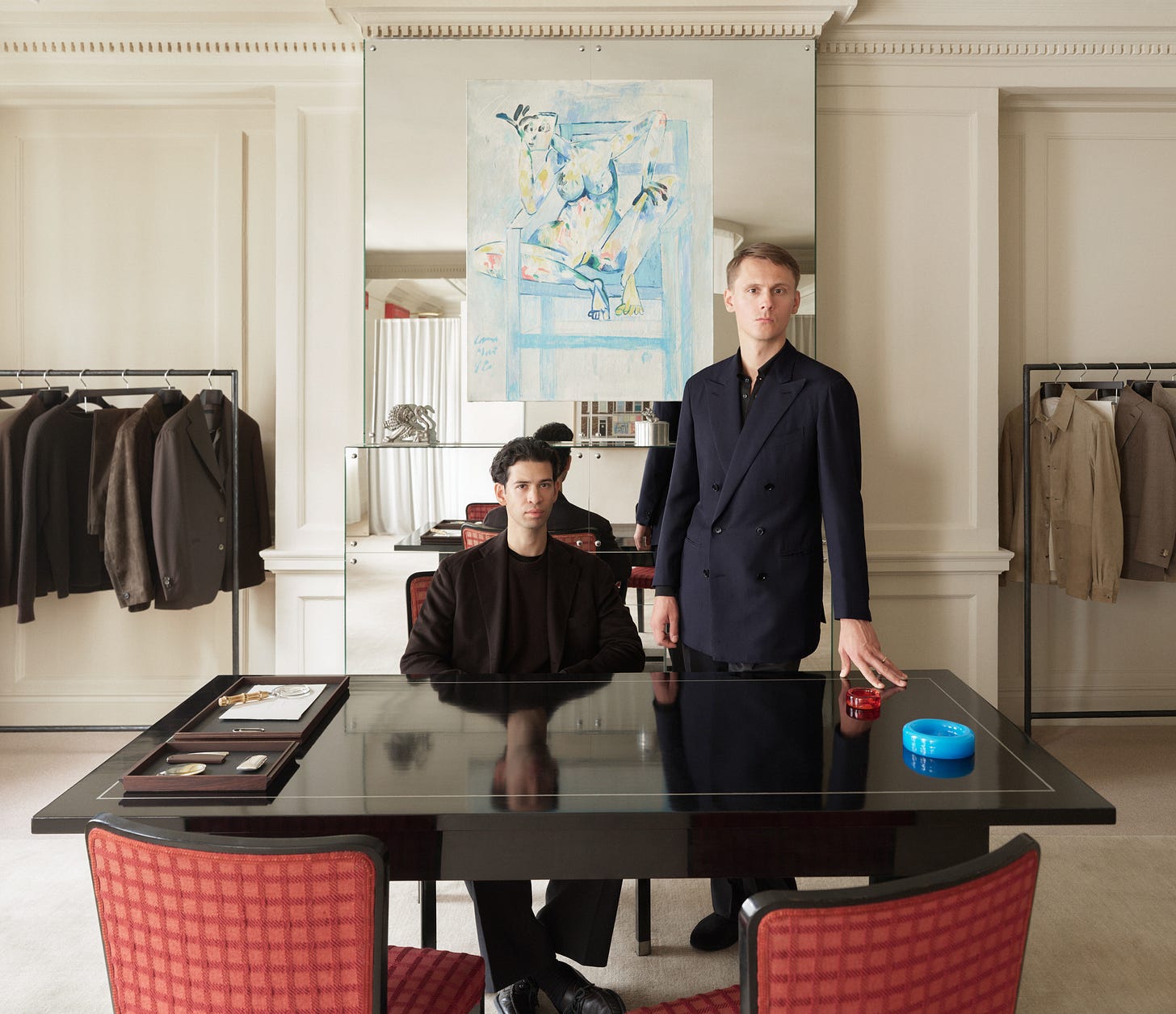How to build a sustainable luxury business
The story of Swedish tailors Saman Amel, who built a sustainable luxury tailoring brand without investment or hype one suit at a time, offers lessons for startup luxury firms
Ralph Lauren famously started his empire by selling ties, and now it’s the turn of Saman Amel. The Swedish tailoring brand, founded by Dag Granath and Saman Amel, started in 2015 in their hometown of Vallentuna, just outside of Stockholm, when the pair bought a few metres of raw silk to make five handmade ties. Today, the brand also has a store on Albemarle Street in London’s Mayfair, and it’s managed to achieve an annual revenue increase of 40 per cent year-on-year ever since it was first founded, and all without outside investment. How?
Enjoying Dark Luxury? Get access to our exclusive investigations, analysis and interviews by becoming a paid subscriber.
When we think of fine tailoring, we think of a cloistered world in which Geppetto-esque craftspeople toil away at their dying art inside of loss-making, yet still grand institutions. Indeed, it might be tempting to think of tailoring as an industry in long-term structural decline, like coal, steel, or even print magazines (of which Conrad and I are veterans).
And yet, astonishingly, clever, innovative stuff does happen in tailoring – just not as quickly and as loudly as it does in the rest of fashion.
Not only in the form and manner in which suits are worn, but also in how they are made, sold and designed. And we think that these new trends have a broader relevance to how fledgling luxury brands might operate in the future.
Tiffanie Darke’s epiphany
The moment Tiffanie Darke decided to give up what would be many people’s “dream job” happened in lockdown. When the rest of the country stayed at home and almost all shops were shut down, Harrods’ then editor-in-chief found herself creeping into the empty and eerie department store – “like behind-the-scenes at a museum” – with the lights and all the esc…
Today’s story about Saman Amel will be the first in a series in which Dark Luxury looks at new models emerging within the industry, which allow for younger brands to build long-term staying power and growth potential. It was, in part, inspired by our report about the British Fashion Council, which concluded that more was needed to help young British design talent make the leap from graduation and media hype to building a long-term, sustainable business.
Before interviewing co-founder Dag Granath via Zoom from his HQ in Stockholm, I first visited their store on Albemarle Street, which opened last year. Nestled in among the art galleries and members clubs of Mayfair, and just a stone’s throw away from Bond Street and Savile Row, the shop is a plush silk- and velvet-lined, appointment-only space on the second floor of a building that it shares with various hedge funds. At once lush and sensuous, yet also sleekly modern, the shop — which is actually more like a private salon or atelier — is as well appointed as any in the surrounding area.
This part of Mayfair is the perfect location for Saman Amel, which offers both the designer modernity that can be found on Bond Street with the craft and customer service traditions of Savile Row.





